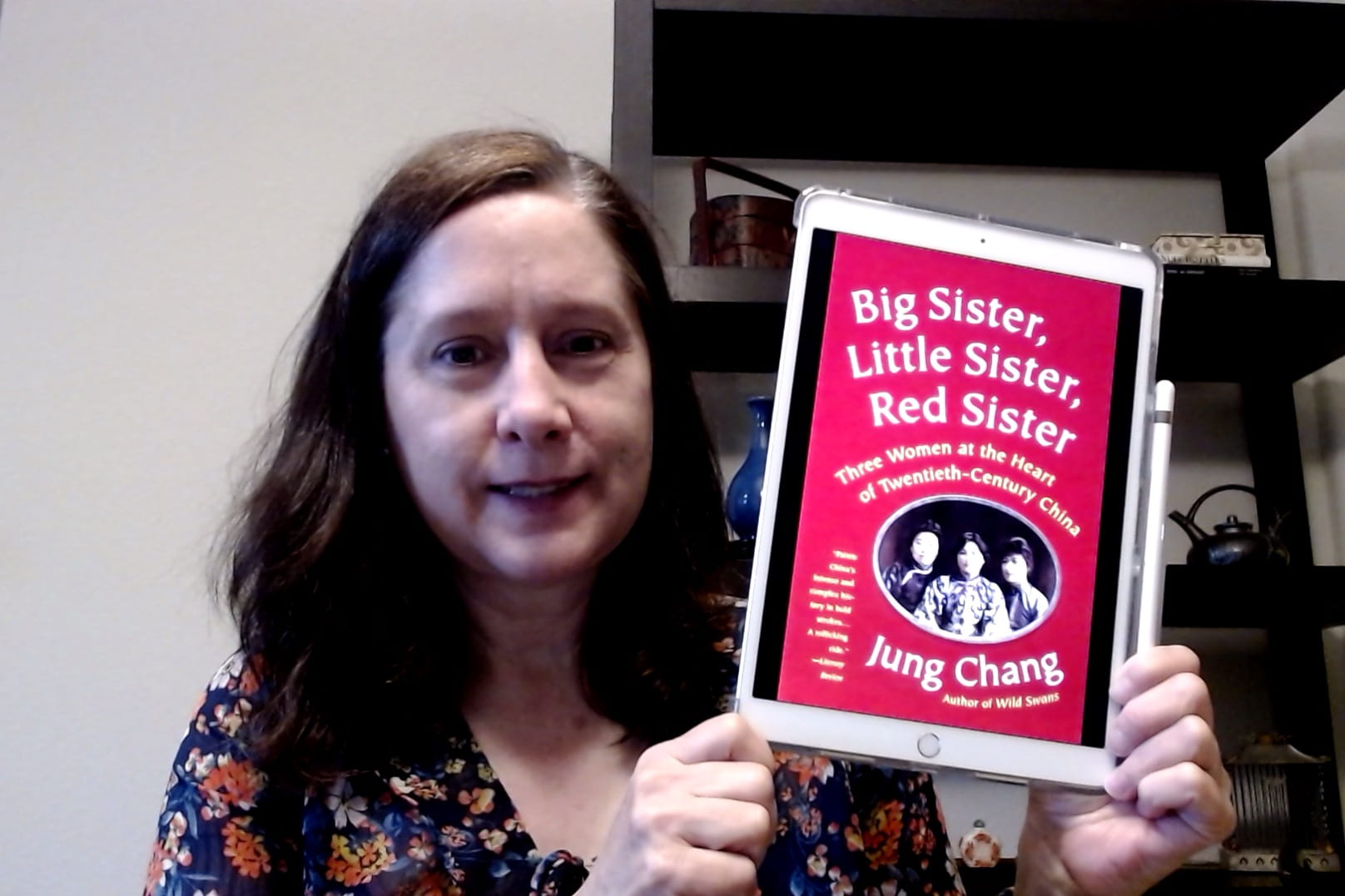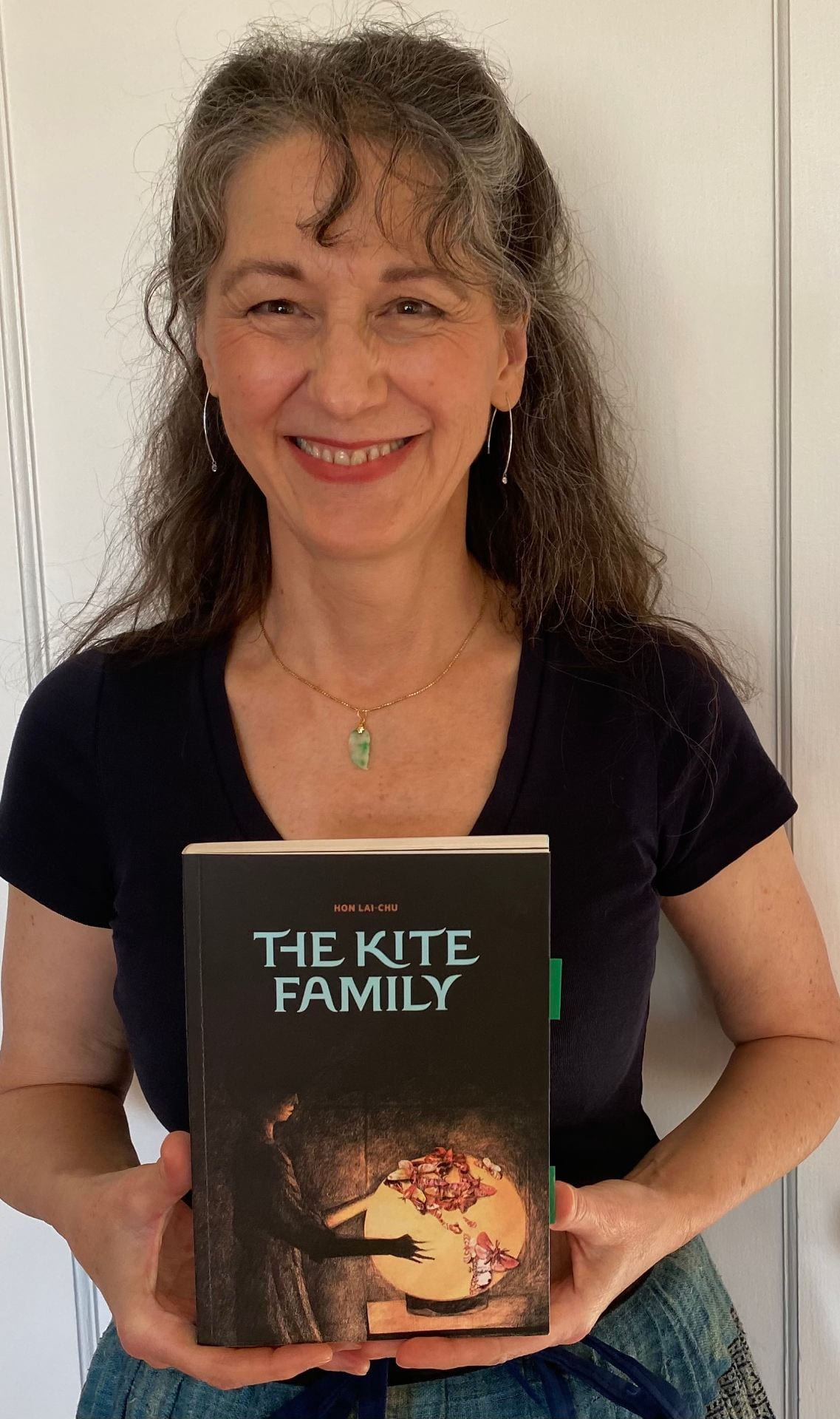
This January, the Center for Asia Pacific Studies hosted its first-ever online Winter Book Club. This fun, informal, community-building event proved to be an excellent way to bring together readers interested in learning more about the Asia Pacific region while we were at home over the winter break, in places as near as San Francisco and as far as rural Minnesota. The moderators led participants in conversations about their topical specialties: modern Chinese history and Hong Kong literature.
 In our first meeting (January 8th), Dr. Melissa Dale (Executive Director) led a lively discussion about Jung Chang’s Big Sister, Little Sister, Red Sister. The Soong sisters from Shanghai were the most famous women in China during the 20th century. Big Sister, Ei-ling, became one of China’s richest women. Red Sister, Ching-ling, married the ‘Father of China’, Sun Yat-sen, and would later become Mao’s vice-chair. Little Sister, May-ling, became Madame Chiang Kai-shek, first lady of Nationalist China. These women, living through a period of war, revolution, and great change in China, provided numerous topics for discussion ranging from the role of women, marriage, the Soong family’s connections with the US, and the challenges these women faced and overcame. We also learned more about the famous men in their lives, from husbands to lovers, and political rivals to allies. Dr. Dale’s presentation that accompanied the dialogue included rare historical photographs and videos that added color and context, helping attendees to visualize the lived experiences shown within this group biography of the Soong sisters. Attendees were intrigued by the careening trajectory between coldness and warmth, and how the sisters’ family relationships were complicated by the political divides of their time.
In our first meeting (January 8th), Dr. Melissa Dale (Executive Director) led a lively discussion about Jung Chang’s Big Sister, Little Sister, Red Sister. The Soong sisters from Shanghai were the most famous women in China during the 20th century. Big Sister, Ei-ling, became one of China’s richest women. Red Sister, Ching-ling, married the ‘Father of China’, Sun Yat-sen, and would later become Mao’s vice-chair. Little Sister, May-ling, became Madame Chiang Kai-shek, first lady of Nationalist China. These women, living through a period of war, revolution, and great change in China, provided numerous topics for discussion ranging from the role of women, marriage, the Soong family’s connections with the US, and the challenges these women faced and overcame. We also learned more about the famous men in their lives, from husbands to lovers, and political rivals to allies. Dr. Dale’s presentation that accompanied the dialogue included rare historical photographs and videos that added color and context, helping attendees to visualize the lived experiences shown within this group biography of the Soong sisters. Attendees were intrigued by the careening trajectory between coldness and warmth, and how the sisters’ family relationships were complicated by the political divides of their time.
 In our second meeting (January 22nd), Dr. Andrea Lingenfelter (writer, award-winning literary translator, and adjunct faculty member at USF) invited participants to visit the world of literary translation and contemporary Hong Kong fiction. Dr. Lingenfelter led a conversation about a book she recently translated: Hon Lai-chu’s The Kite Family (2020). Within the text, we met a patient who escapes from an asylum to live as a mannequin in a store display; a man who transforms himself into a chair so people can sit on him; and a family that suffered from sudden onset obesity. These surrealist stories delved into the minds of Hong Kongers living on the brink of an incomprehensible reality. Characters in Hon Lai-chu’s stories provided participants with a myriad of fascinating scenes and situations to discuss. Attendees compared the book to Kafka, and found the frenetic and nightmarish style to be a reflection of the unchecked capitalism and political uncertainty in Hong Kong. Dr. Lingenfelter shed new light on the process of bringing this work into translation, guiding attendees through a close read of fun translation challenges, and answering attendee questions about her current translation projects.
In our second meeting (January 22nd), Dr. Andrea Lingenfelter (writer, award-winning literary translator, and adjunct faculty member at USF) invited participants to visit the world of literary translation and contemporary Hong Kong fiction. Dr. Lingenfelter led a conversation about a book she recently translated: Hon Lai-chu’s The Kite Family (2020). Within the text, we met a patient who escapes from an asylum to live as a mannequin in a store display; a man who transforms himself into a chair so people can sit on him; and a family that suffered from sudden onset obesity. These surrealist stories delved into the minds of Hong Kongers living on the brink of an incomprehensible reality. Characters in Hon Lai-chu’s stories provided participants with a myriad of fascinating scenes and situations to discuss. Attendees compared the book to Kafka, and found the frenetic and nightmarish style to be a reflection of the unchecked capitalism and political uncertainty in Hong Kong. Dr. Lingenfelter shed new light on the process of bringing this work into translation, guiding attendees through a close read of fun translation challenges, and answering attendee questions about her current translation projects.
Have a book recommendation for our Summer Book Club? We would love to hear your suggestions? Send them to: centerasiapacific@usfca.edu